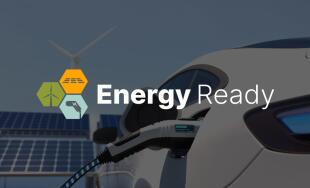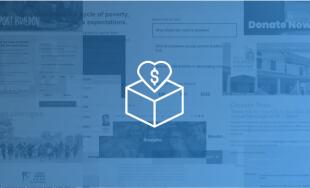Nonprofits need to be especially cost-sensitive when marketing their organization. For that reason, the Web is a fantastic platform to focus marketing energy. We've built more than a hundred nonprofit websites on a variety of content management systems (CMS) and thought it would be helpful to share some helpful tips for what nonprofits should keep in mind when choosing a CMS. Here are eight questions to ask your development firm when deciding on which CMS to use:
1) Is the CMS easy to use for non tech-savvy people?
While some nonprofits staff-members may be comfortable working with programming languages or navigating unfamiliar backend interfaces, a significant portion of the staff will need to be able to create and edit the website's content through an interface that is easy-to-use, intuitive and requires minimal training.
If a staff member does have trouble with making an update to the website, there should be easily accessible and clearly written documentation, help articles and frequently asked questions for common actions that are made in the CMS.
2) Can the CMS be easily integrated with our CRMs and fundraising services?
Nonprofits often rely on contributions and volunteer work to accomplish their mission. The CMS platform that you choose should be able to integrate with your specific donation and constituent relationship management (CRM) service so that you don't have to take additional time to manage separate databases through your website. A successful CMS and donation platform integration will allow you to optimize your nonprofit's donation page.
If you don't have a CRM in place, the CMS should allow you to easily create custom forms for things like volunteer and event signups so that the website can allow you to collect valuable information from your advocates.
3) Is updating the CMS simple and straightforward?
CMS's, particularly open source solutions, need to be regularly updated to fix security holes and take advantage of new features. Updating the CMS should be simple for a non tech-savvy staff member to complete with confidence. Even better, many CMS solutions automatically update so there's no additional work required by the organization to get the latest features!
4) Is your support reliable and timely?
If something goes wrong or the CMS's documentation doesn't answer a question, the CMS should have a dependable support team that will respond to inquiries quickly. Having a go-to contact on the support team is also a plus. The support team should be reachable by phone or email so that any staff member can get in touch with them in whatever way he or she is most comfortable.
Knowing that there's an expert that's available to help out can go a long way towards making sure every staff member is at ease when they're making changes to the site.
5) Timeline – How long will it take to get all the features in place that are needed on the CMS?
Every web project has a timeline and it's important to take that into consideration when deciding on a CMS. If the CMS requires configuring a number of plugins in order to get the basic functionality in place, that CMS may not be as appealing as a solution that has all the necessary components, like custom form creation or photo galleries, right out of the box.
6) If we have feature additions in the future, is the CMS flexible enough to handle them?
Conversely, if a CMS has a lot of features right out of the box, ensuring that the CMS is flexible enough to handle potential feature expansions in the future is also an important criteria when determining the CMS for your website. A CMS should be able to morph to fit the needs of your organization and being locked into a set group of features and functionalities is not an attractive solution, especially given the ever-changing nature of the web.
7) We have previous experience with a certain CMS, should we stay with that one?
If your current website uses a CMS that many of the staff-members are comfortable and happy with, it might be worth sticking with the same CMS, assuming that the CMS can handle any feature expansions if there's a website redesign planned for your nonprofit in the future.
There's a learning curve to any new CMS and by keeping the same solution in place, you can save the time it would take to train staff members on a new system. There's something to be said about the old idiom, if it ain't broke, don't fix it!
8) What is the cost?
Cost is a factor for every company, but it's especially important for nonprofits. When deciding on a CMS, determining the cost difference between one solution and another should be a priority. Many web development firms work with a number of CMS's, but have different costs depending on which system the website is built. Make sure to ask your development firm if there's a CMS that might be cheaper to build the site on!
For those of you that have previously gone through the process of choosing a CMS, what other factors did you consider?




Leave the first comment